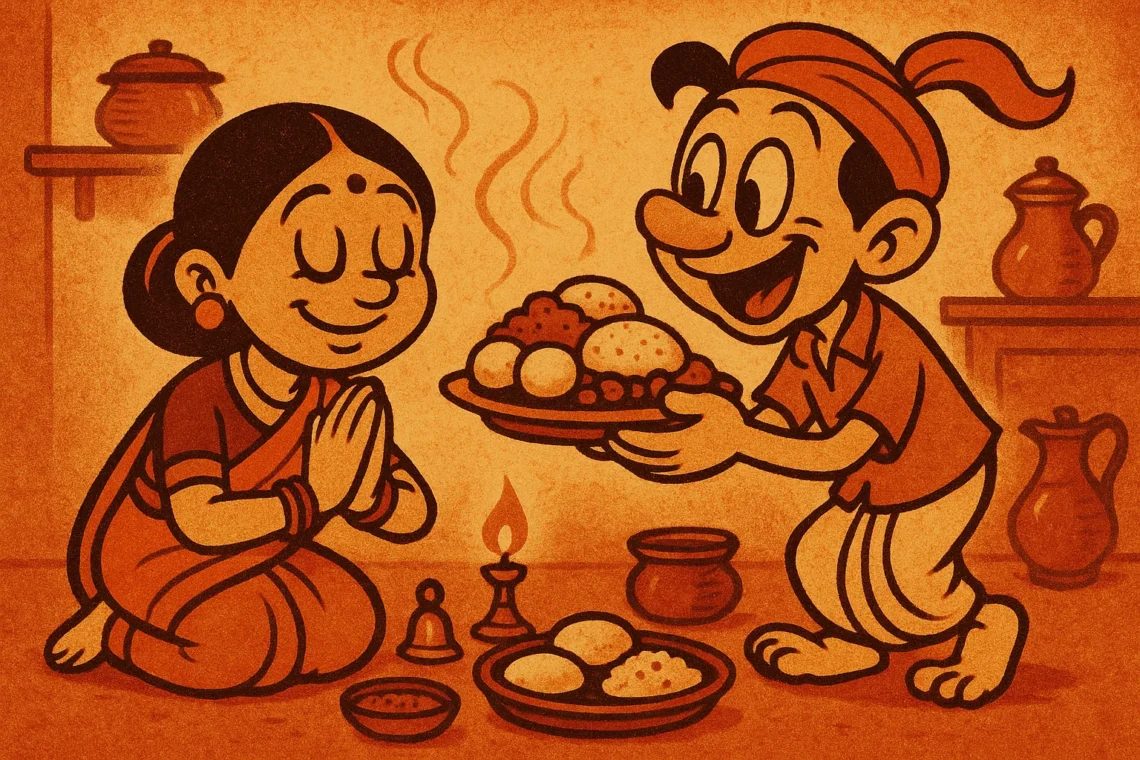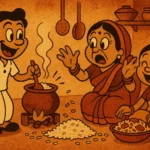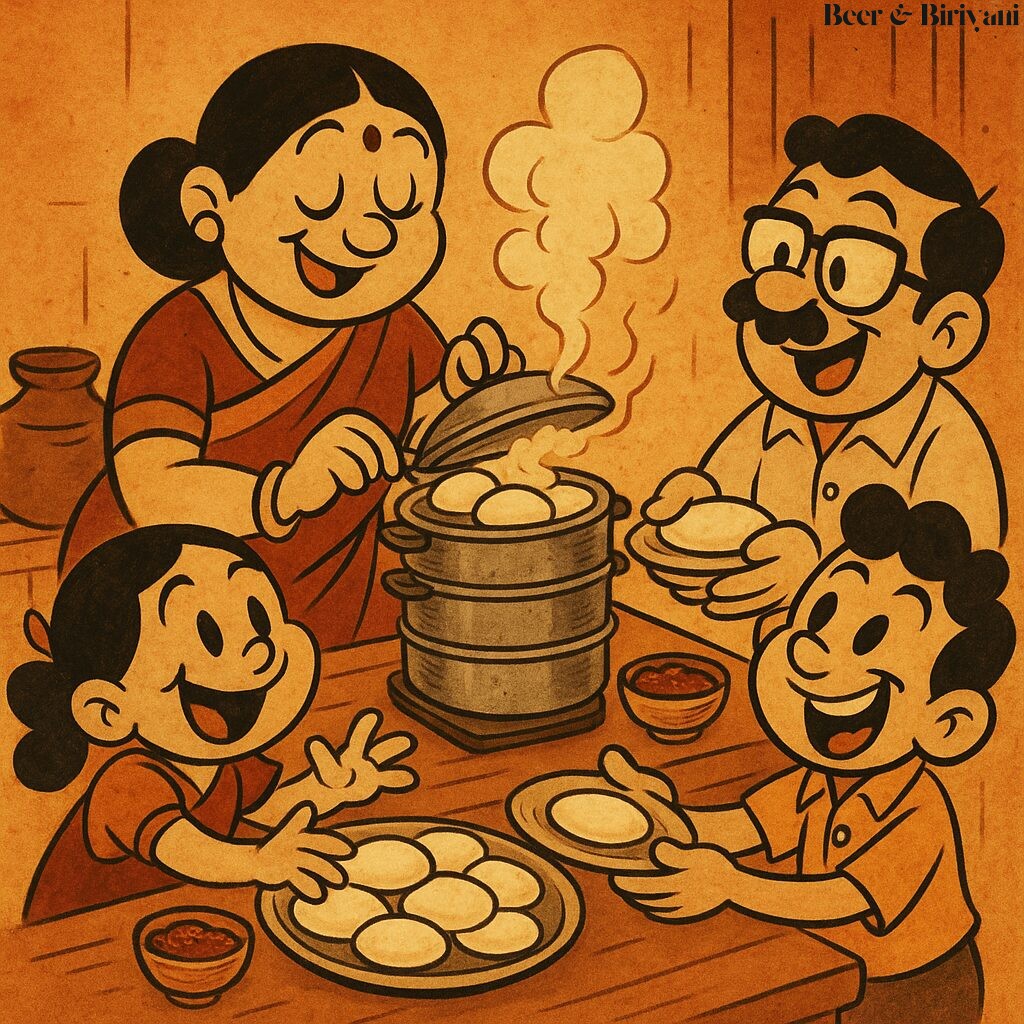It’s hard to explain to someone outside the culture why you’re not allowed to eat idli until the tulsi plant has been watered and the agarbatti has burned halfway down its stick. But if you grew up in a Hindu household like mine, you know the rule: *pooja first, then breakfast.* And it wasn’t up for debate.
Sunday mornings in Mumbai smelled like turmeric and jasmine. While other households might have eased into the day with the smell of toast or the gurgle of a coffee machine, ours began with sandalwood smoke and the clink of a bell. The pooja wasn’t elaborate — not always, anyway. But it was non-negotiable. Even if you were starving. Even if the upma was ready. Even if the podi was already mixed in ghee and calling your name. You waited.
The Morning Theater of Devotion
My mother moved through the morning like a temple priestess on a tight schedule. She’d light the lamp, wipe the gods’ small frames with a dab of rose water, and carefully place a few sugar crystals or a spoonful of the day’s breakfast as *naivedyam*. If it was a special day, a banana would be sliced, placed on a silver plate, and offered first. One time I tried to sneak a piece. Never again.
The rest of us would hover, trying not to be obvious about our hunger. I’d pretend to be deeply interested in the day’s newspaper while eyeing the steaming idlis from the corner of my eye. But we knew — nothing entered the mouth until the lamp was lit, the prayer sung, and my mom had waved her hand in a circular motion three times before pressing a warm kumkum dot onto our foreheads.
The Sacred Before the Stomach
Looking back now, it wasn’t just about God. It was about rhythm. It was about starting the day with pause, not consumption. In a world where we wake up and immediately grab our phones or caffeine, those mornings demanded stillness. A tiny window where gratitude — even if mumbled, even if ritualistic — came before gratification.
There was a grace to the slowness. You could hear the birds outside. The sound of the conch from the neighbor’s window. The thick, syrupy chant of Suprabhatam from someone’s transistor radio. Our pooja room was just a corner shelf with framed gods, fresh flowers, and little steel bowls — but in that moment, it was the center of the universe.
How It Taught Me to Wait
I didn’t appreciate it then. As a teenager, I thought it was old-fashioned. I’d grumble, roll my eyes, and ask why God needed to eat before I did. But when I moved out — first to a college hostel, then to a flat in Austin — I realized what I missed most weren’t the meals. It was that quiet, intentional beginning to the day.
Now, sometimes, even without a formal altar, I light a tea candle in my kitchen. I let the smell of incense fill the room before I eat. I don’t chant, but I close my eyes. Just for a moment. I think of my mother’s hands — always gentle during the aarti, always firm when she told me to wait five more minutes. And then I eat. Somehow, it tastes better that way.
The Breakfast That Waited
When we were finally allowed to eat, it felt like a reward. Idlis never tasted as good as they did after pooja. Steamed, soft, dipped into piping hot sambhar, chased with a spoon of coconut chutney — all of it felt more precious, more deserved. You didn’t just fill your stomach. You crossed a threshold. You entered the day.
To this day, I remember those breakfasts not just for the food, but for what came before. The ritual. The wait. The sound of the bell echoing down the hall. The feeling that you were starting the day not alone, but under the eyes of something older, wiser, and slightly amused at your hunger.
Because in that house, no matter how urgent the day felt, there was always time for light, for prayer, for pause. *Pooja first, then breakfast.* And in that small order, there was a kind of peace I now spend my mornings trying to find again.
Born in Mumbai, now stir-frying feelings in Texas. Writes about food, memory, and the messy magic in between — mostly to stay hungry, sometimes just to stay sane.












